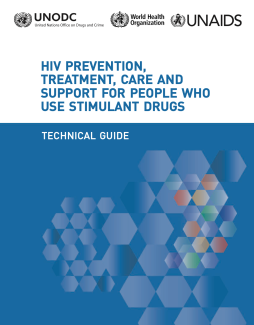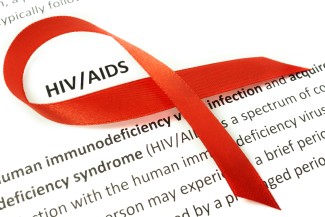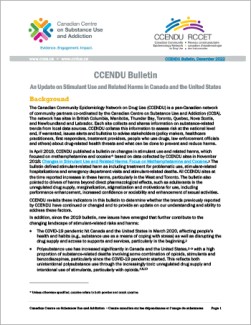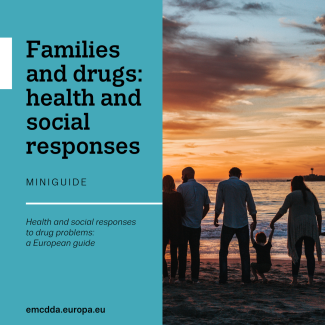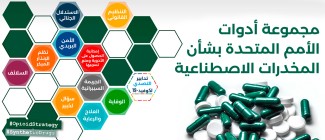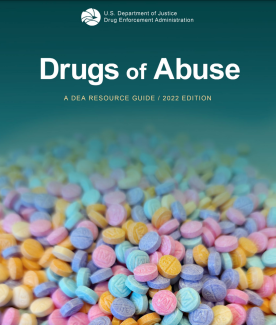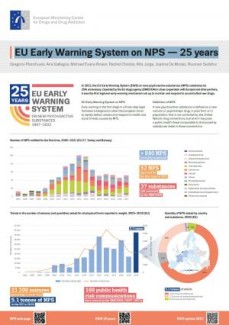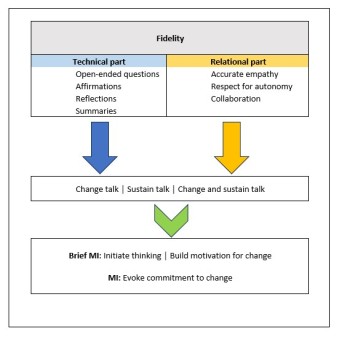
Search
Ending Inequalities for People who Use Drugs: How the Global HIV Response can Transform Drug Policy
This side event for the 65th Commission on Narcotic Drugs was originally presented on 14 March, 2022. Organised by INPUD, it was co-sponsored by Médecins du Monde, UNAIDS, UNODC HIV/AIDS Section, the Netherlands and Australia.
In 2021...
HIV Prevention, Treatment, Care and Support for People Who Use Stimulant Drugs
Since the beginning of the HIV epidemic, the focus on HIV prevention, treatment and care among people who use drugs has concentrated on the needs of people who inject drugs, and mainly on those who inject opioids. However, data show that...
UNODC work relating to substance use and HIV
UNODC has put together summaries of the work that they are doing relating to Drug use and HIV.
Here, you can find out more about the work that UNODC has done relating to
Moving towards a continuum of safer supply options for people who use drugs: A qualitative study exploring national perspectives on safer supply among professional stakeholders in Canada
Background
Novel public health interventions are needed to address the toxic drug supply and meet the needs of people who use drugs amidst the overdose crisis. Safer supply – low-barrier distribution of pharmaceutical grade substances –...
The Canadian Community Epidemiology Network on Drug Use (CCENDU) Bulletin: An Update on Stimulant Use and Related Harms in Canada and the United States
The Canadian Community Epidemiology Network on Drug Use (CCENDU) is a pan-Canadian network of community partners co-ordinated by the Canadian Centre on Substance Use and Addiction (CCSA). The network has sites in British Columbia, Manitoba...
Families of people who use drugs: health and social responses
This miniguide is one of a larger set, which together comprise Health and social responses to drug problems: a European guide.
It provides an overview of the most important aspects to consider when planning or delivering health and social...
Brief counselling by a doctor can reduce drinking
A new systematic review and meta-analysis has found that alcohol-targeted brief interventions (short, structured, one-to-one conversations about drinking designed to motivate changes in risky behaviour) delivered in doctors’ offices and...
مجموعة أدوات الأمم المتحدة بشأن المخدرات الاصطناعية
تدعم مجموعة أدوات الأمم المتحدة بشأن المخدرات الاصطناعية المجتمع الدولي في تنفيذ تدابير استجابة شاملة لمواجهة مشكلة المخدرات الاصطناعية.
وضعت مجموعة الأدوات استجابة لقراري لجنة المخدرات 8/61 (2018) و4/62 (2019) اللذين دعيا مكتب الأمم...
Drugs of Abuse
Drugs of Abuse delivers clear, scientific information about drugs in a factual, straightforward way.
With the information in this guide, parents and caregivers can help their children make smart choices and avoid the consequences of drug...
Experts’ views on how to design a tobacco control fund in the UK
Abstract
Objective To explore expert views on the potential value, and approaches to establishing and administering a tobacco control fund in the UK.
Design Semistructured interviews and follow-up discussion groups.
Subjects Twenty-four...
The power of connection: collaboration and co-design in clinical services
This presentation explored a co-design process that was implemented in clinical services in metropolitan Australia from 2019-2022.
The challenge of successfully implementing integrated care in mental health (MH) and alcohol and other drug...
Reaching smoke-free: how can we improve smoking cessation treatment?
This webinar explored the provision of smoking cessation treatments, including e-cigarettes, in the context of primary care.
It provided an overview of investigations into how smoking cessation treatment provision in the UK could be...
EU Early Warning System on NPS- Poster
Summary
This poster, presented during the IX International Conference on NPS(24 to 26 Oct 2022, Panama), showcases some of the work of the EU Early Warning System on new psychoactive substances. Operated by the EMCDDA, in close cooperation...
Recreational use of nitrous oxide — a growing concern for Europe
Summary
The purpose of this report is to examine the current situation, risks and responses to the recreational use of nitrous oxide in Europe. To support this, the report also provides a state-of-the-art review of the chemistry...
Correction: Interdisciplinary collaboration in the treatment of alcohol use disorders in a general hospital department: a mixed-method study
Background
Interdisciplinary collaborations (i.e., where various disciplines work coordinated and interdependently toward shared goals) are stated to yield higher team effectiveness than multidisciplinary approaches (i.e., where various...
Understanding injecting drug use in Afghanistan: A scoping review
Background
Several reports have described a growing prevalence of illicit drug use in Afghanistan, with recognition of a recent shift from traditional modes of consumption involving inhalation and oral ingestion to injecting drug use.
Obj
...Correlates of treatment engagement and client outcomes: results of a randomised controlled trial of nabiximols for the treatment of cannabis use disorder
Introduction and aims
There is increasing interest and evidence for the use of cannabinoid medications in the treatment of cannabis use disorder, but little examination of the correlates of successful treatment. This paper is a secondary...
Disruptions to U.S. local public health’s role in population-based substance use prevention and response during COVID-19
Background
The COVID-19 emergency has tested the public health, medical, and public safety infrastructure of the United States (U.S.) in unprecedented ways. As the focal point for public health in their communities, local health...
Integrated brief interventions for noncommunicable disease risk factors in primary care: the manual
Abstract
Brief interventions are recognized by WHO as an effective measure to help people quit tobacco, reduce or stop alcohol use and increase physical activity. They can also help to achieve and maintain healthy eating behaviours and...
Mortality and life-years lost following subsequent physical comorbidity in people with pre-existing substance use disorders: a national registry-based retrospective cohort study of hospitalised individuals in Czechia
Summary
Background
Substance use disorders constitute a major global public health problem, attributable largely to their subsequent comorbidity with other health conditions. This study aimed to investigate the risk of all-cause death and...
Share the Knowledge: ISSUP members can post in the Knowledge Share – Sign in or become a member



